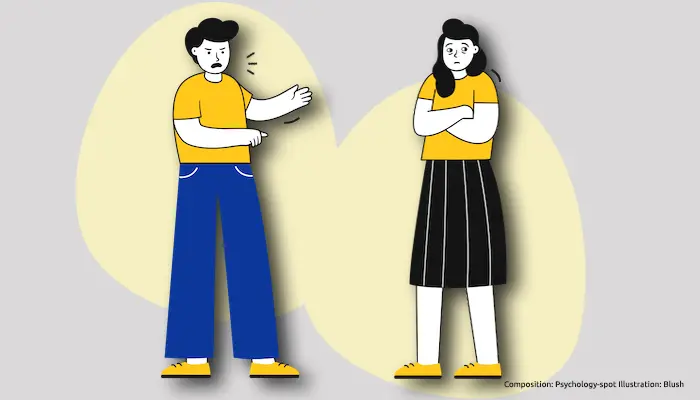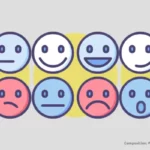
The wound of betrayal is an emotional scar that usually has deep ramifications since it has been caused precisely by the people closest to us – be it the partner, children, parents or friends – people who did not keep their promise, did not protect or comfort us when we needed it most or even lied to or rejected us. Healing the wound of betrayal is not easy, but it is essential that we do not get emotionally stuck in that event, especially if we want to regain confidence in life and re-establish full relationships with others.
There are many betrayals, but not all of them hurt
Throughout life we can suffer many betrayals, but not all of them will leave traces. Not every betrayal becomes a trauma. However, when the betrayal comes from the people closest to us, those whom we have identified as a source of emotional support, it is more likely to generate an emotional tsunami of such proportions that it ends up undermining our mental balance and leaving a trail that is difficult to erase.
Betrayals often turn into psychological trauma when they deal with matters that are particularly important and significant to us, so that we perceive these actions as a full-blown attack on our “self”. Generally, this type of behavior triggers very intense emotional reactions marked by anger, disappointment, hopelessness, helplessness and disappointment.
The problem is that sometimes the pain of betrayal is such that we react by building a protective wall around ourselves. We assume that if the closest people we trusted were capable of betraying us, everyone else will. When we believe that we cannot trust anyone, we end up getting far from the others and losing the ability to commit ourselves, for fear that they will harm us again.
However, the walls that protect us also isolate us. In the long run, they will prevent us from having fulfilling relationships or meeting people worth trusting. We even run the risk of reworking our entire psychic life around the wound left by the betrayal.
The signs that reveal that the wound of betrayal continues open
If we have suffered an important betrayal that has left its mark on us, it is likely that we wear a mask to hide that wound and protect ourselves from our most atrocious fear: feeling betrayed again. The mask becomes our only protection mechanism, to the point that we can come to believe that we are like that, when in reality it is just a learned behavior to guarantee our psychological survival.
Some of the signs that may reveal that we are suffering a trauma due to betrayal are:
• Strong need to control everything, mainly because these people experience a very high level of anxiety in the face of uncertainty and the free will of others, since this implies the possibility of being betrayed. However, these people often confuse their need for control with a “strong character.” In fact, they are usually very jealous and feel the need to watch every step of their partner, friends or children. However, they often disguise their need for control as help.
• Phobia of lies that goes well beyond the normal response to insincerity or deceit. As a result of a still festering wound, these people usually have a disproportionate emotional reaction that often makes them lose control, easily and quickly going from love to hate.
• Difficulty trusting the others, so they are very demanding and demand disproportionate displays of affection and loyalty. These people have excessively high expectations and are very critical, making it difficult for them to build relationships. However, they find it difficult to understand why others do not trust them and many times they interpret it as a betrayal.
• Fear of being vulnerable, so they hide what they feel. These people find it very difficult to open up to others, they are very reserved and sometimes even emotionally distant because they are afraid of showing their “weak points” and being betrayed again.
• They believe in the idea “think wrong and you will be right”. Betrayed people form a negative image of the world, assuming that no one can be trusted, so they feel very alone. They are also very strong in their opinions and have a hard time giving in as they always want to have the last word. Deep down, they believe that the wound of betrayal gives them moral authority over others and that they really know what life is.
How to heal the wound of betrayal?
A betrayal can mark us. It can affect our self-esteem and even change the image we have formed of the world and the perception we have of the others. However, if we do not delve into that pain, we remain prisoners of it, hidden behind the mask that we use to defend ourselves.
For this reason, it is important to avoid remaining anchored to the betrayal experience.
First we have to observe what happened, how we experienced it, what the circumstances were and what we felt. Doing this introspection exercise assuming a psychological distance will help us to relive what happened with a new perspective.
So we need to identify the behaviors that hurt us, understand and accept them. Accepting betrayal does not mean accepting it as good or minimizing the pain it caused us. It means giving us permission to move on.
There are a thousand and one reasons why people can betray others, either because they were convinced that it was a white lie or because of simple exhaustion. There are also worse reasons. Of course. But the objective is not to psychoanalyze who betrayed us, but to assume what has happened to us in order to integrate it into our vital history and turn the page.
Of course, this is a great deal of psychological work that is not done overnight. We need to be aware that we may have raised certain barriers or are wearing a mask. When we get to this point, it is important not to recriminate ourselves because there is a great risk of redirecting all the hatred and resentment we felt towards the person who betrayed us, towards ourselves.
We simply have to allow ourselves to feel our pain and all the unpleasant emotions. Anger, rage or sadness or even guilt, one of the most difficult emotions to recognize. The next step is to realize that the betrayal of one person does not condemn all of humanity.
We can all make mistakes. Betrayal, although painful, is one more experience in life. We can heal the wound with compassion and love. Accepting the lights and shadows that we all have.



